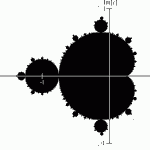This post is part of a series of responses to the comments on my ongoing series on math and morality. You can check out previous posts in this series here.
So having spent one post answering questions using my sight metaphor, I’m going to move away from it in this round of answers. (Remember, as George Box said, “Essentially, all models are wrong, but some are useful.”).
Eitan said:
[M]orality is clearly quite different than EVERYTHING else we know. If there were objective values, they would be entities or qualities or relations utterly different from anything else in the universe. Furthermore, if we were aware of them, it would have to be by some special faculty of moral perception or intuition, utterly different from our ordinary ways of knowing everything else.
The best move for the moral objectivist is as you seem to have done, to look for companions in guilt. For example, Richard Price argues that it is not moral knowledge alone that we are unable to account for, but also our knowledge of other things like substances, etc.
Yet we have good empirical explanations for things like sight (light-waves, retinas, etc.), whereas your claim about morality depends on 1. Postulating value-entities or value-features of quite a different order from anything else with which we are acquainted; and 2. A corresponding faculty with which to detect them.
This was a pretty common objection to my post on certainty and morality yesterday. Crowhill and Hendy concurred with Crowhill adding:
I’d like to emphasize that with sight you can vertify it with other senses. I see a banana, I feel a banana, I smell a banana, I taste a banana.
What’s the analogy with “morally right”? What other sense allows me to verify my intuition?
Ok, here’s where I’m going to step off the sight metaphor a bit. Morality is a system/organizing principle/schema and is not directly experienced. Taking moral action produces sentiments in us that are experiential. Optical laws are a property of light which are not experienced directly, but their applications are observable. We will never have experiential proof that the laws are laws.
I think our reason to ‘believe in’ morality here is most similar to our reason to ‘believe in’ causality or the idea that we live in an ordered universe or the continued existence of unobserved objects. These are conjectures we make that are required for our interpretations of experiential data to be coherent. They are not provable but have never yet been disproved. They are axioms for our way of reasoning about ourselves and the world, and should be regarded as at least equally true as the conclusions that are derived from them.
And now it’s time to return to the last question Eitan asked:
And how different is this imperfectly-knowable entity you posit, whose existence and relation to you you believe with quite some certainty, than some other mysteriously-known entities posited to exist throughout history?
Certainly Christians have employed similar rhetoric in service of their God. In today’s On the Square column at First Things, Joe Carter puts forward a vision of evangelism that hinges on the idea that all people have a sensus divinitatis— an innate sense of God.
So, how do I differentiate between how I am arguing and how Joe Carter is arguing? On the very trite level, I say that I am right and he is wrong. By that I mean that my precepts are universal in a way his are not. Plenty of people (me among them) do not have any sense of God or yearning for the divine. Christians would need to put forward a reasonable theory of why his universal feeling is so limited. (They can get around it by defining God down to “a sense that there might be something larger than ourselves” or “a belief in morality as a meaningful concept” but these ideas are too vague to belong to any god or religion).
In contrast, as C.S. Lewis writes in Mere Christianity, even the most fervent relativists usually try to justify their actions according to fairness or some other moral principle. We find embrace of amorality among psychopaths and we find it correlates well with other widely reviled first principles (solipsism first among these). Just take a look at the Calvin and Hobbs cartoon below to see how quickly amorality breaks down in the presence of other moral actors.
















